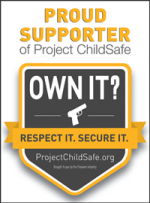After every high-profile killing, the cry goes up that America must “do something,” which is how an Aug. 26 Washington Post editorial put it. This urge is so strong that it overwhelms critical thinking. “We certainly don’t know if the gun control measures that (Virginia Gov. Terry) McAuliffe or other would-be reformers favor would have prevented Wednesday’s deadly attack,” the newspaper said. “But it doesn’t matter.” Efficacy doesn’t matter? Really?And there is this:
Apparently not. The two most common proposals in the aftermath of any spree killing are universal background checks (Virginia Democrats are reviving that proposal now) and a ban on assault weapons — neither of which would have a measurable effect on spree killings.
Likewise, bans on assault weapons would have a vanishingly small effect on spree killings. Such bans usually define assault weapons based on cosmetic characteristics — such as a pistol grip or a flash suppressor — that have no bearing on lethality. This is one reason few public officials have tried seriously to revive the 1994 federal ban that expired in 2004.But Hinkle, who has in the past written strongly against gun control proposals, seems to come out in favor of so-called "Gun Violence Restraining Orders" (GVROs) This proposal is the flavor de jour of the gun ban lobby. It allows the courts and/or law enforcement to confiscate the firearms of individuals by showing only "reasonable grounds" that the person is dangerous. I'm not sure where Hinkle is getting his information about GVROs that he can write with a straight face that "Laws like that rest on a clear, articulable suspicion about an individual, rather than on sweeping assumptions that, much like racial profiling, cast suspicion on the dangerous and the innocent alike." The fact is that the low evidentiary standard and lack of a mechanism for individuals to present their own defense in the bill that became law in California fails to meet basic American standards for due process. As Robert Fargo of The Truth About Guns has written:
Although there are millions of so-called assault rifles in circulation (3.3 million Colt AR-15s alone, for example), they actually are used in homicides less often than hammers and clubs. And that’s true for all rifles, not just the scary-looking kind. In 2013, FBI data show, 285 people were killed with rifles — and 428 with blunt instruments.
The restraining order's greatest danger is not its obvious unconstitutionality (trampling due process) or irrelevance (deranged individuals ignore firearms prohibitions). The main problem is the huge potential for abuse by disaffected spouses and/or angry, jealous or greedy relatives.Even after writing supportively of GVROs, Hinkle writes that it's unlikely to cause gun homicide rates to fall by half, which is exactly what has happened over the past 20 years, even as many states have relaxed their gun restrictions.
The real problem with the gun ban lobby is that their proposals are not meant to reduce crime, it's to make it harder for people to own firearms. We have no reason to believe they would be satisfied with so-called "universal" background checks or even GVROs, because if they were to get their way on these, they would be back for more.
Update: On Tuesday, Hinkle was on NRANews Cam and Company to discuss the article in more detail.








No comments:
Post a Comment